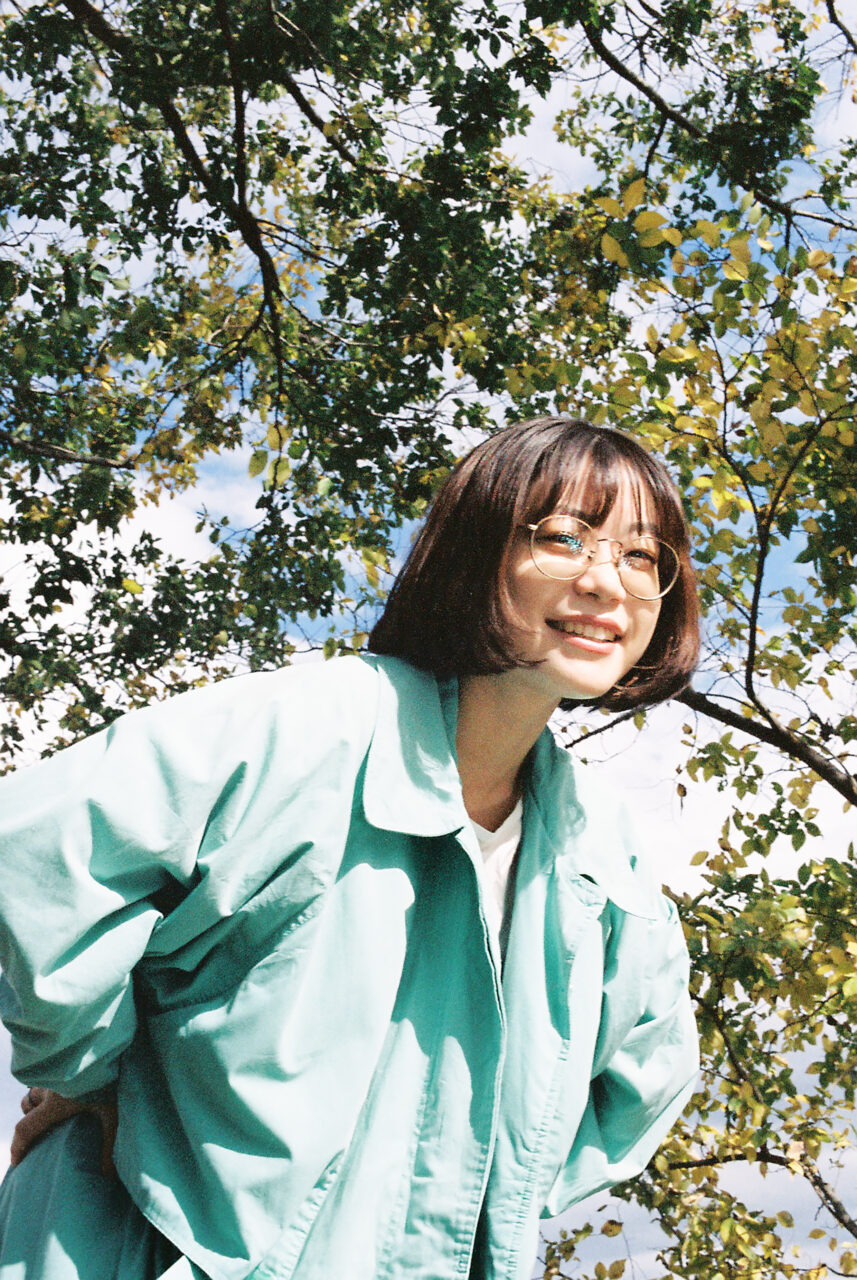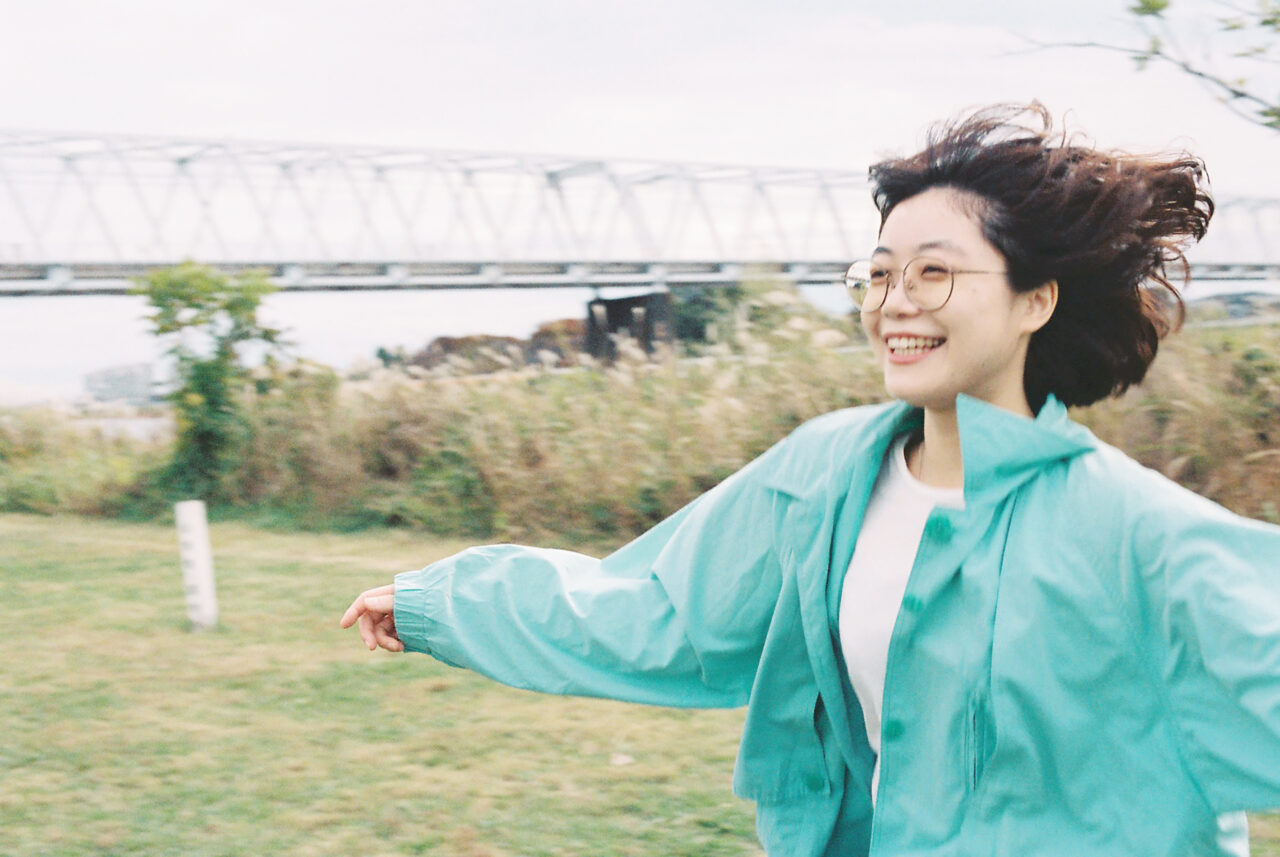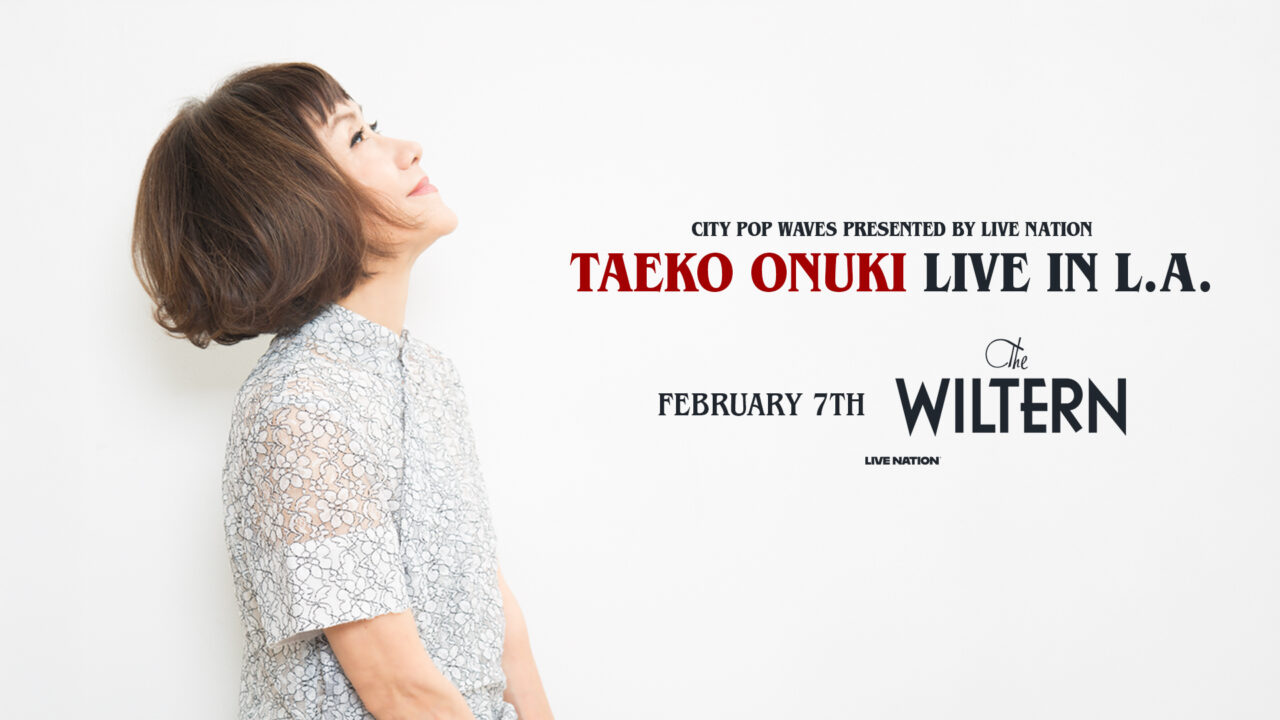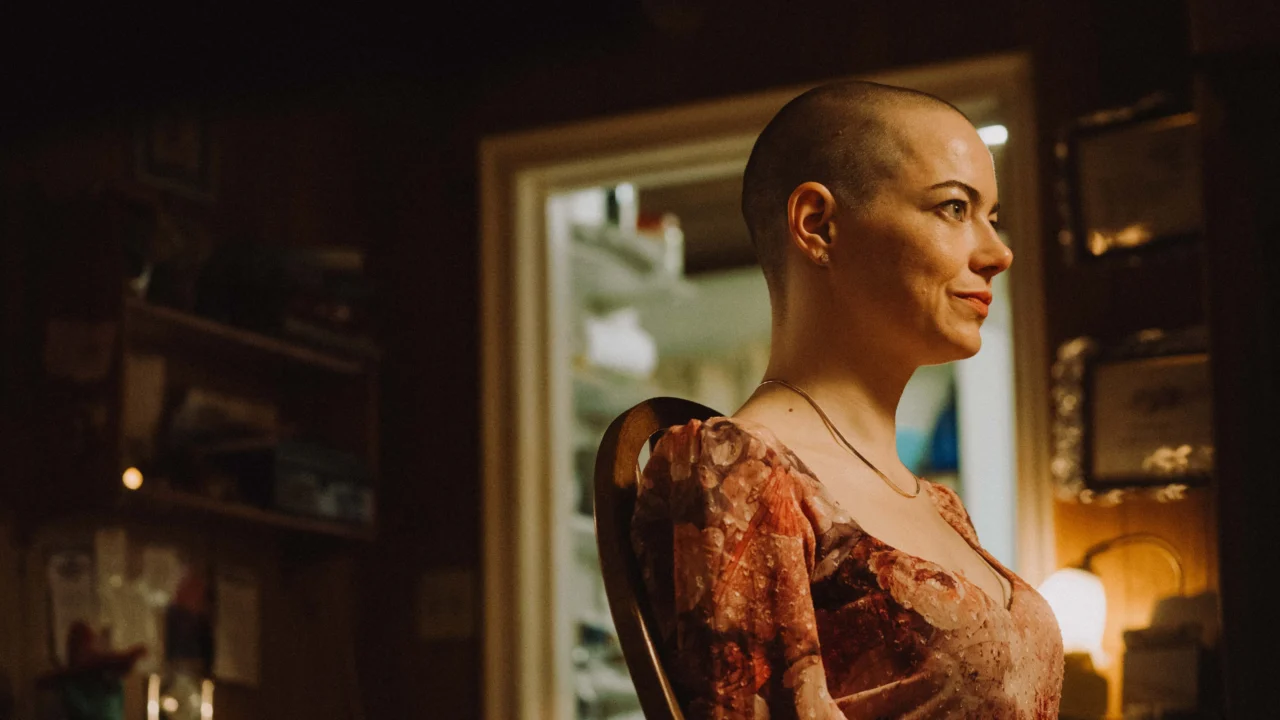Miran, renowned in NiEW for her exchange diaries with Ban Obara in “With Cheeks on the Windowsill,” initially crossed paths with the author during the release of her EP “The Day I Played with a Peachy Pelican” (2021). This marked her inaugural interview, where, despite certain areas of immaturity in songwriting and arranging, her commanding singing style and genuine joy in public expression and interaction set her apart from other singer-songwriters. In essence, she seemed destined for a protagonist’s role.
Fast forward two years, and Miran’s endeavors have expanded rapidly. Under the production of Keiichi Sogabe (Sunny Day Service), “Low Airplane” became the theme song for the movie “Ai ni Neri” (It’s All About Love), leading to her album debut with “Ducky.” Subsequently, she consistently released singles and even ventured into acting, gracing the red carpet for her role in the film “Strange Lovers from a Different Planet.” While rooted in the Kansai region, she made a significant move to Tokyo this year.
Her latest album, “WATASHIBOSHI,” completed amidst this whirlwind of activity, eloquently captures the ongoing narrative of her growth and evolution. In this extensive two-and-a-half-hour interview, Miran reflects on her musical journey over the past year and shares her sentiments about this latest album.
INDEX
A Determined Approach: “Let’s Do It!”
– “From your previous album, ‘Ducky,’ released last March, to your latest album, ‘WATASHIBOSHI,’ it seems you’ve maintained a rapid pace with live performances and single releases. How would you describe your own journey and experience during this time?”
Miran: “Ducky” was also an album that I worked very hard to complete, but it passed in an instant. In September, we released a single, “Natsu no Boku ni Mine ni” (To Me in the Summer).
– I hope you keep up the momentum and keep going and going.
Miran: We had a schedule to complete this album, so we were just trying to get through to this point.

is a singer-songwriter born in 1999. In 2020, she released her first album “Houfu”, which was produced by home recording, followed by the release of many other albums. He produced and released his second album “Ducky”. Later, with Yusuke Kume (Special Favorite Music) as producer, she released “Natsu no boku ni mo me ni”, “Lemon tree”, and “Like it or not”, which were featured on Fuji TV’s “Love music”, and she also wrote an exchange diary with writer Ban Obara in the culture media NiEW. On December 13, 2023, he will release his new album “WATASHIBOSHI”.
-What did you do as motivation in the midst of that busy schedule?
Miran: I remember last September to October was the busiest time for me. I had a part-time job, did a lot of recording and studio practice, had a lot of live shows, and even traveled to Nagoya. But I think I can manage somehow. I knew that if I didn’t manage this schedule as a matter of course, I wouldn’t be able to go on to the next one, so I was like, “I’ll do it! I’ll do it! I am stronger now.
-I started working with Yusuke Kume of Special Favorite Music (SFM), who produced “WATASHIBOSHI,” on the album “Natsu no Boku ni Mimo” (released in September 2022), which I mentioned earlier. Miran: “Ducky” was released in September 2022.
Miran: “Ducky” was a work that we made while regularly going into the studio for sessions, and we managed to make something interesting despite being burned out, but when it came time to work on another album, I thought, “I can’t take full responsibility for this…! I can’t take full responsibility for this…! I thought, “I can’t take full responsibility for this…! I decided to ask for help from others. I knew that Kume-san does a lot of production and commercial work, so I thought I would like to ask him for help, and Shinya Ogino, who did the mix for “Ducky,” introduced me to him.

-So you started working with Kume for the album from there.
Miran: No, at first we were only going to do “Even for Me in Summer. Mr. Kume was living in Osaka at the time, so I visited him at his home and we had a great time talking and working on the arrangements. I thought, “I want to ask him to do the whole album.
-What kind of communication did you have for “Natsu no Boku Nimo”?
Miran: I told him that I wanted to keep the elements of acoustic guitar playing, and that I wanted to include a lot of key points so that it would look good live. Kume-san came up with the band arrangement, and I was so impressed with the balance of the drums, guitar, and bass that I thought, “This is something I couldn’t do with “Ducky.” I was so impressed that I thought, “This is something I couldn’t do with “Ducky.” Since “Meet the Dragon” was already in the works, the arrangement and recording was done quickly and easily, as if it was an added bonus.
-How did you proceed with the recording process for the album, starting with these two songs?
Miran: We were planning to release a few singles before the album, so we recorded a second time in October 2022 and a third time in Tokyo in March 2023. I hadn’t thought about moving to Tokyo at all, but the people who supported me kept moving to Tokyo. Mr. Kume and Yuto Sawai (bass guitar) of Nekko-Sen also moved to Tokyo. I started to wonder if I should move to Tokyo.


INDEX
Unexpected Red Carpet Moment
-What did you record for the second recording session in October?
Miran: “In Love,” “More Futari,” “As You Like It,” and “Lemon Tree. “. 4 songs. I was told about the movie “Strange Lovers on a Different Planet” at this point, so it was a must to complete the theme song “Be in Love” and the insert song “More Together”.
-How did you write the theme song, “Fall in Love”?
Miran: I wrote it while talking with the director, Satoshi Kimura, and reading the script. The director told me to “make it freely,” but I tried not to deviate too much from the story. The second scene in the film, “I didn’t do anything so wrong that I can be blamed for pointing fingers,” is a specific scene itself.
-The flow from the C melody to the last chorus and outro has a showcase for each part, and the overall arrangement is very sparkling.
Miran: I had an image of people crossing paths like in a trendy drama, while at the same time keeping it pop enough to be widely accepted. I still have the list of reference sounds I gave Mr. Kume on my cell phone. Eiichi Otaki’s “Kimi ha natu shiroi”, Ohashi Trio’s “Dazzling encounter”, Neko Sen’s “Satellite”, Rei’s “Smlile! Smlile! with Fujiwara Sakura”…… I see, I see.
-You also acted in this movie. What was your first acting experience?
Miran: I never imagined that I would be walking the red carpet at the “Tokyo International Film Festival.” But unlike music, which is mainly performed by myself, it was interesting to experience how to behave in order to get the director to give me an OK, rather than whether I was satisfied with my performance. As we went through several takes, I began to understand what kind of ideals he was looking for. It was a sense of learning the joy of being involved in other people’s work.
-You played the role of Shuko Nakayama, a musician, very naturally, but it was a completely different character from your usual personality, wasn’t it, Miran?
Miran: I am not someone who can say things as outspoken as Shuko, so it was nice and interesting to try saying things that I don’t have in my mind.
-I love that line in the Kansai dialect at the end of the scene.
Miran: There it is (laughs). A turn of phrase that would never come from me. I think she is a person who has a strong sense of pride. But he also has a cute side that makes you fall in love with him.

– You are also from the Kansai region, but you are not as cutesy as Shuko.
Miran: That’s why it was difficult. I had to practice a lot because the Kansai dialect tends to lower the tone of my voice. I would like to continue to do a lot of acting in the future, and if possible, I would like to play a role in standard Japanese next time.
– I would like to play a role in standard Japanese next time, if possible.
Miran: It’s a song that I’ve had since the beginning of my career, and I pulled it out because I thought its slightly damp feel would suit Shuko.
– The song was recorded with Issei Bonmaru of Bellmints on gut guitar.
Miran: I wanted to use a gut guitar on “More Futari” and “Lemon Tree,” but I only had a cheap one. I heard that Bonmarukun had one, so I asked him to lend it to me. I asked him to bring it to the studio where we were recording, but Mr. Kume recklessly said, “It’s your guitar, so maybe Bonmaru should play it. (Laughs). Then Bonmaru got on board and came up with phrases for the interludes, which made for an interesting recording.


























